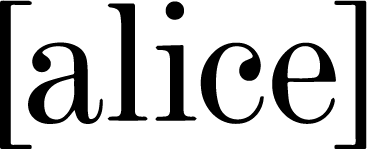By: Emie Garrett
When tuning into country radio stations today, artists like Luke Bryan, Jason Aldean and Florida Georgia Line seem to dominate the airwaves with their similar electronic-pop-inspired tunes about tailgate parties, hunting and the pursuit of the “tanned-legged Juliet” to their “redneck Romeo.”
Recently, this bro-country sound, characterized by its heavily synthesized beats and recurring misogynistic themes, has had a vice grip on the country music industry. This has led many to believe the “outlaw country” music of the past is long gone. But the subgenre, which became popular in the early 1970s by country music legends like Johnny Cash, Willie Nelson, Merle Haggard and more, isn’t dead yet — not by a long shot.
Outlaw country artists give a proverbial, and sometimes literal, middle finger to the mainstream country music industry.
Instead of leaning into the smooth Nashville sound of the 60s, early country outlaws found their roots in established subgenres like honky-tonk and rockabilly, blending rock and folk rhythms with lyrics about sex, drugs, prison and societal injustice — the gritty and real parts of life that aren’t easy to look at.
Part of the alluring mystique surrounding country outlaws, like Cash and Nelson, is their resolute choice to live outside of society’s boundaries by choosing to be pariahs, or rather, not care if they are.
While the term outlaw might not be synonymous with loving and kind, part of these artists’ rebellion was choosing love and acceptance in a society that didn’t.
Nelson had been a long-time advocate for gay rights and the legalization of marijuana. In 1964, after hitting it big with his legendary hit “Ring of Fire,” Cash released a then-controversial album advocating for Native American rights entitled, “Bitter Tears: Ballads of the American Indian.”
Now in 2021, artists like Sturgill Simpson, Margo Price, Tyler Childers, Orville Peck, Mickey Guyton and more follow in the footsteps of their predecessors by bulldozing the boundaries of mainstream country music, refusing to fit into the box of country.
While all these artists embody what outlaw country stands for, some aren’t classified as such.
It’s easy to listen to the music of artists, like Simpson and Childers, and see the outlaw influence in their bluesy, honky-tonk sound with lyrics about living hard. Songs like Childers’s “Purgatory” and Simpson’s “You Can Have the Crown” fit into the subgenre by sound and content alone. So, for artists like Price, Peck and Guyton who have a smoother, less honky-tonk style sound it’s hard for some to classify them as “outlaws” in the traditional sense of the term.
However, the true spirit of being an outlaw isn’t about a certain sound, it’s about pushing boundaries and not trading one’s artistic freedom for commercial success.
Peck, with his face-obscuring, fringed leather mask, has created a theatrical persona akin to Lady Gaga if she were a male country singer.
Peck’s 2019 album, “Pony,” which explores his life as a queer man through the lens of a “lonesome cowboy traveling across the West,” is not one that you would necessarily listen to and immediately think outlaw, but the attitude behind it fits the bill. Peck isn’t trying to fit into any mainstream molds, instead, he makes his art his way, and he doesn’t apologize for it.
For female singers like Price and Guyton, the cards are already stacked against them in a male-dominated and often highly sexist industry. But like true country outlaws, that doesn’t stop them from speaking their truths.
In a November 2020 article with Independent, Price spoke about publicly stating her opposition to former President Donald Trump, “No one was going to utter that they didn’t like Trump, but I f—ing put out a political country record and went public and said that I didn’t support him, I didn’t like him, and I was going to vote for Hillary.”
In an industry with a large conservative fanbase, the move definitely cost Price some fans, but she went on to state that it was necessary that someone spoke up about it.
Guyton earned her outlaw credit through the way she shared her experiences as a Black woman in America with her breathtakingly vulnerable song, “Black Like Me.”
With the lyrics, “If you think we live in the land of the free / You should try to be Black like me,” Guyton calls listeners to take a look at their own privilege and the uncomfortable reality of what it means to be Black in America. Guyton doesn’t euphemize or ignore the challenges she, and all people of color, face just because it might make some people uncomfortable.
That’s the point; it should make people uncomfortable. It’s a call for change, and making statements for change is what being an outlaw is all about.
Outlaw country has never been defined by a particular sound, but by a certain attitude and voice. An outlaw speaks to injustice, messy and ugly parts of life.
These artists don’t just talk about the things that most gloss over or brush under the rug, they shout it through a bullhorn— or more likely, a microphone— to hundreds of thousands of people.
They make some audiences uncomfortable, yet make others feel entirely seen. They don’t care if they have your approval, and they refuse to back down or change, in the pursuit of fame. That’s the very essence of an outlaw.
Check out this playlist to learn more about Country Outlaws:






